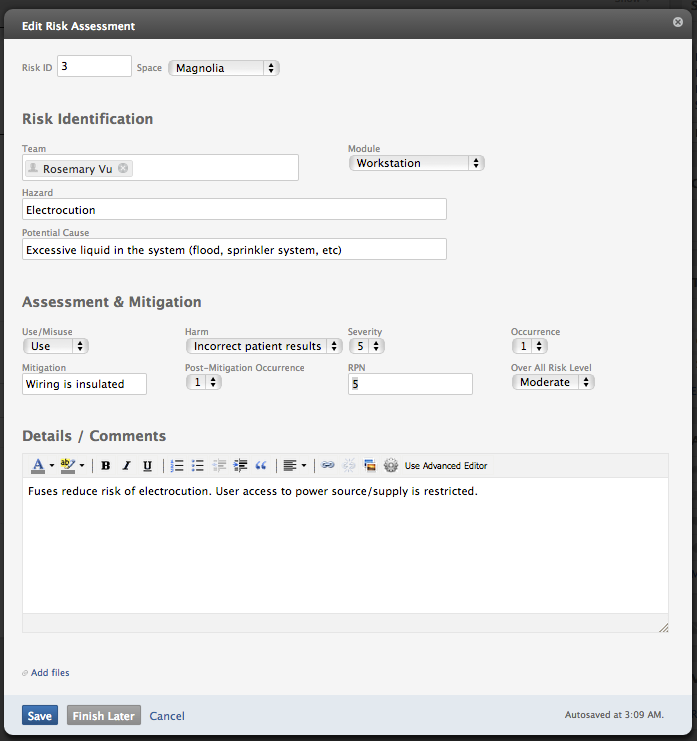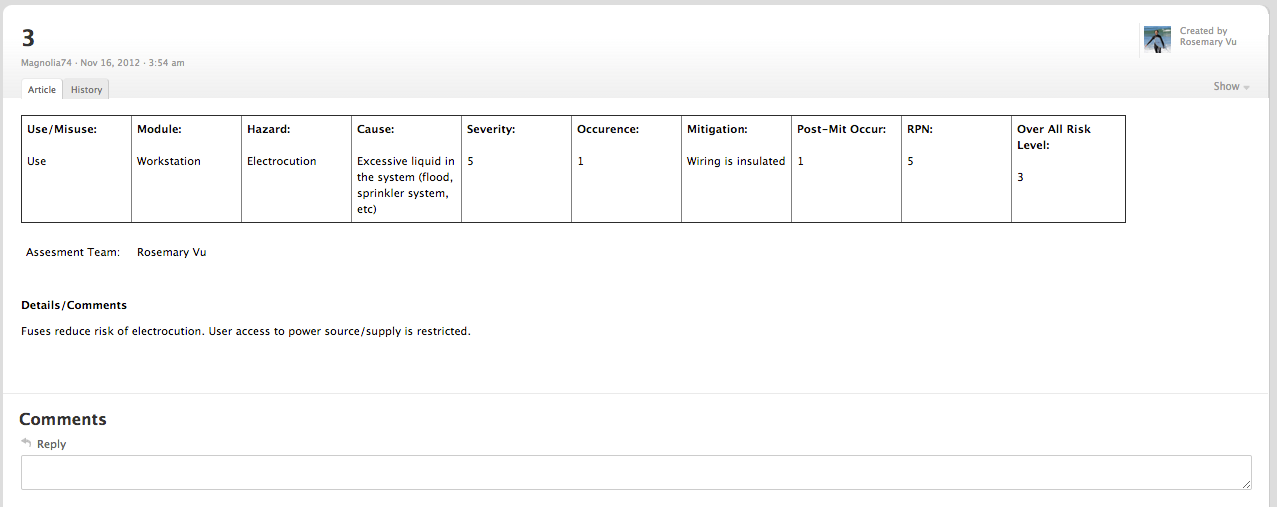Pharma and Biotech Risk Management
Risks are the leading cause of costly delays in the process of bringing a biotech product to market. Risk management in the product development process all too often means one person juggling a list of risks in a spreadsheet. It's hard to edit, but even harder to open a discussion on an existing risk when someone has a question, sees a problem, or wants to add a new risk. Traction® Software partner Rosemary Vu used Traction® TeamPage's Section Table widget and extended TeamPage's Article to create a Risk form. For more on TeamPage Section Tables, see Q: How do I link to an Excel file? A: Why Would you Do That?
Here's an example of a Section Table of Risks, including risk type, module, hazard, cause, severity, likelihood of occurrence, and other attributes.
Unlike a spreadsheet, you can easily expand and comment on any entry in the table. Click the Add button to add a new Risk to the table and raise the Risk form. Rosemary created the Risk form as a specialized extension of a TeamPage article, inheriting all standard TeamPage comment, task, tag, edit history, search and activity feed capabilities, while adding editable attributes as pulldown choices or fill in the blank field. Like other TeamPage extensions the Risk form is packaged as a plug-in to make extension installation, sharing, and maintenance very simple. Rosemary created the Risk form on her own with no IT help or programing experience by incrementally modifying a free plug-in example from Traction Software's SDK Forum Library.
Here's an editable view of the third Risk:
The TeamPage Risk form has fields, pulldowns and a free text description that makes it very easy to enter and edit. Risk values are formatted in a way that makes them easy to read when a Risk is shown as single Teampage article (below) as well as when a Risk is referenced in a Risk table.
Using TeamPage to manage Risks makes it easy for anyone to submit a risk, update a risk, and comment on the issues associated with it. TeamPage's extensible and customizable architecture makes it possible for a power user with no programing expertise to extend Teampage, and easily share that extension with other TeamPage customers. Rather than relying on just one person to manage all risk information in a spreadsheet, the whole team gets involved and plays a part in identifying and resolving risks. Accountability is raised and communication is much more efficient. TeamPage's easy extensibility makes risk management in biotech and other similar tasks in other domains clearer, easier, faster, and more effective.



 I18N ERROR: @tsiskin#footer_RSS_Feed
I18N ERROR: @tsiskin#footer_RSS_Feed